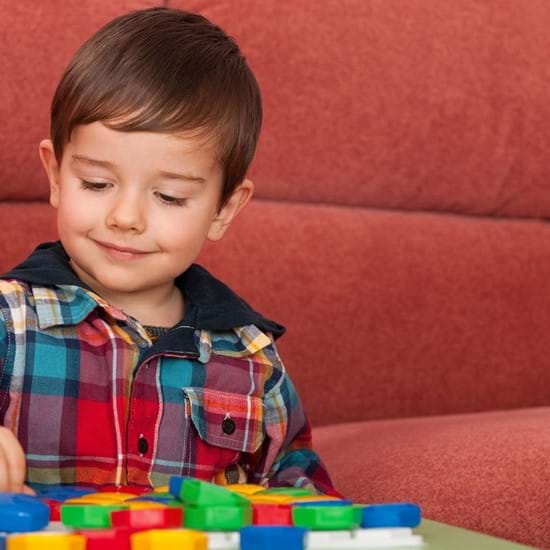
Is Your Child’s Friend A Bad Influence?

Written by: Nanny Secours
Over the years, your child has had different friends. Most of them probably had a good influence. However, you may have noticed that some of them exerted a slightly less positive influence. Maybe you observed this through your kid’s acts, words or attitude. It was rather easy to get your child back on track before, but now, he or she has grown up. How should you approach the topic of the influence of friends with your child? What to say and not to say? What to do and not to do? Let’s try answering these questions!
The Signs
Which signs should you watch out for? Of course, attitude or behavioural changes are the first signs that indicate your child is changing. Isolation, absenteeism, lack of motivation, provocation, arrogance, misdemeanour, low grades, new interests, are all hints that shouldn’t be neglected and that you should pay close attention to.
These changes can happen slowly or quickly—even suddenly. A sign that doesn’t lie: not recognizing your child anymore. Your red light should turn on when you notice that!
However, depending on your child’s age, different factors can influence behaviour or attitude: puberty, academic challenges, family conflicts, heartbreak, or any other disruptive event. So, no need to worry every time a small change occurs!
It’s important to look at the whole picture. Ask yourself questions like: When have I started noticing these changes? What could explain them? What events happened in the past few months? In other words, you’re looking for the cause of these sudden changes. It’s possible it was a combination of factors; it’s even a strong possibility! But what should you do if the influence of a friend seems to be the cause?
3 Traps to Avoid
First, keep in mind certain traps should be avoided. It’s not always easy to determine whether a friend exerts a positive or negative influence on your child. Some traps can even hinder your analysis of the situation.
1) Prejudices. Sometimes, appearances can be deceiving, and our preconceptions can be unfair to others. One of your child’s friend may have a different style, or be from a different background or culture. But difference isn’t an indicator of good or bad influence. You might want to take a step back before interfering!
2) Life’s experiences. As a parent, you’re sometimes able to see bad situations coming… because you experienced them as a child or teenager! It’s never easy to separate your own experiences from those of your child when your red light turns on. Even if parents want to protect their children, it’s important they let them have their own experiences, except when their safety is jeopardized, of course! No matter how much you tell your children trouble is coming, as long as their red light doesn’t light up, you’ll have a hard time changing their perspective! It’s a bit like with fire: you know it’s hot, but you don’t truly understand it until you get a little too close!
3) Forbidding. You might be tempted to simply forbid your child from being in contact or spending time with the friend in question. But doing so won’t necessarily remedy the situation and might even make it worse, especially if both kids attend the same school. But it’s good to have this solution in mind if your child is ever in danger. In that case, you might want to seek guidance from a counselor or other professional.
The Essentials
So, in practice, what should you do? The most important thing is to maintain the relationship and be there for your child! Children who feel judged or stuck tend to feel misunderstood and isolate themselves. You can try slowly opening the discussion on the topic of friends: ask your child what he or she likes about a certain friend and what qualities he or she appreciates in a friend in general, talk about what makes a friendship healthy, etc. If you understand your child’s perspective, it’ll be easier to explain your observations, which you can share if your kid is receptive.
These discussions can also help you better understand what the friendship in question brings to your child. Does it fulfill a need? Is it fuelled by fear? If you know what your child has to gain in this relationship, it’ll be easier to find solutions to meet the needs you targeted. For example, your daughter could need to assert her personality or uniqueness more, to have more freedom, to strengthen her sense of belonging, to try new activities, to have experiences outside of the family nest, etc. What’s great is that you can fulfill your child’s needs in various ways! You can guide your child in this reflection one step at a time.
Furthermore, your discussions can also lead you to determine certain abilities your child should develop. Is it easy or difficult for your kid to say no; to assert personal tastes and preferences? Is your child attentive to his or her perception of danger? Does your child have self-confidence and a good self-esteem? Sometimes the “problem” goes away when kids develop their ability to listen to and assert themselves. Then, the friend who exerted a bad influence becomes a neutral friend! And if the friendship isn’t cultivated anymore, sooner or later, the two kids risk to naturally drift apart.
Finally, although children need more freedom the older they get, this doesn’t mean they can do whatever they want! Freedom also comes with responsibilities and a framework. You might need to remind your child of that! What is your family environment like? What are your expectations, your values? What happens if these are not respected?
If the situation is more tense, whether that’s because you’re having a hard time taking a step back, because your child doesn’t open up easily, or because your child’s behaviour exceeds your abilities, you can always ask for help. A counselor can help you validate or redefine your personal and family values, as well as define your apprehensions and establish a clear framework, while staying in tune with your child’s needs.
Hopefully these pointers can help nourish your reflection and open a dialogue with your child!
Josée Filion,
Special care counselor and family coach


